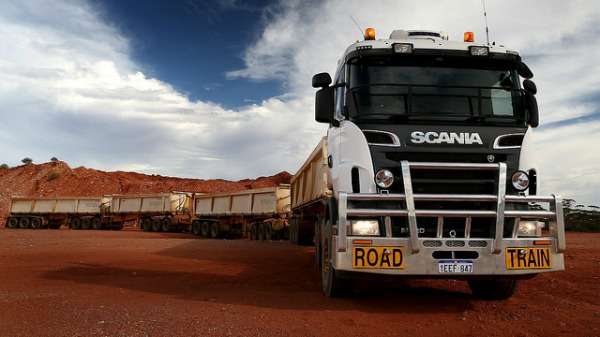Heavy vehicle crashes result in approximately 250 deaths and 1500 hospitalisations each year in Australia, with WA averaging 26 fatal and 166 serious injury crashes annually.
Heavy vehicle drivers with an empty load are two-and-a-half times more likely to crash than those carrying freight.
This finding comes from a Curtin-Monash Accident Research Centre study which also found WA drivers who had recently unloaded their freight had a significantly increased risk of crashing.
Several factors are to blame for the traffic accidents, Curtin University Professor Lynn Meuleners says.
"Certain handling problems such as trailer sway due to an empty load may increase the risk of a rollover crash," she says.
"Another explanation is the limited experience of the driver in handling an empty vehicle."
While participants didn't admit to sleep being an issue, drivers who spent more than half of their trip driving between midnight and 6am were four times more likely to crash.
This highlights the importance of scheduling and fatigue reduction, Prof Meuleners says.
"A recent [separate] study found that three continuous hours of night driving can contribute to driving performance errors equivalent to a 0.08 blood alcohol concentration level," she says.
WA laws allow for longer working hours
WA laws require drivers to have regular breaks, but monitoring could be an issue.
Unlike all other Australian states, WA has not adopted the 2008 Heavy Vehicle Driver Fatigue Laws, which set rest and work length limits and require specific records.
Instead, WA has its own regulations, which allow longer working hours of up to 17 hours per day and 168 hours per fortnight.
The state's unique conditions of extreme temperatures, monotonous scenery and vast distances between rest stops could also impact fatigue.
"Heavy vehicle safety could be improved through training for driving with empty loads and rigid vehicles, training targeting less experienced drivers as well as scheduling-related factors including minimising night driving and enforcing regular breaks," Prof Meuleners says.
"Of all road crashes that occur, those that involve a collision with a heavy vehicle are amongst the most severe in terms of human life as well as dollar value."
Heavy vehicle crashes result in approximately 250 deaths and 1500 hospitalisations each year in Australia, with WA averaging 26 fatal and 166 serious injury crashes annually.
The study involved 100 long-distance heavy-vehicle drivers recruited from four truck stops that covered WA's major trucking routes including Kewdale and Meekatharra and 100 drivers previously involved in police-reported crashes.
All participants were driving vehicles of 12 tonnes or more and undertaking a trip of at least 200 kilometres, the equivalent of driving from Perth to Bunbury.
Provided by Science Network WA
This article first appeared on ScienceNetwork Western Australia a science news website based at Scitech.
























